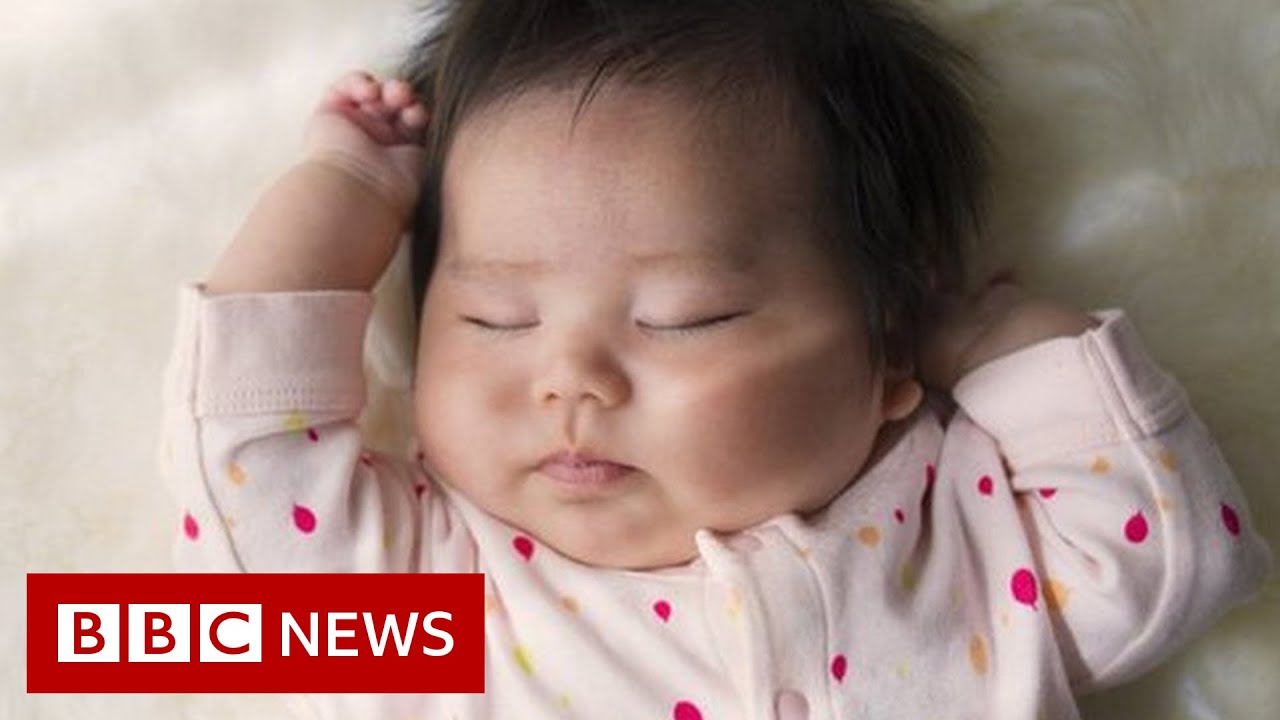
Why does Japan have so few children? – BBC News
Why does Japan have so few children? – BBC News
Japan’s number of children has been reported to be at its lowest since 1950.
There are just 14.6 million children in the nation under the age of 14, according to figures from Japan’s internal affairs ministry.
Japan’s falling birth rate and high life expectancy is putting pressure on public spending and resulting in labour shortages.
The…
source
Reviews
0 %













I think it’s because Japanese guys are sick of women and their nonsense. Good on them. Women need to change.
Less sex
Nigerian men can handle this for Japan .give them more kids 😅
📌 News from 2023
A potentially deadly bacterial infection called streptococcal toxic shock syndrome, or STSS, is spreading in Japan, prompting questions about what causes it and how to prevent it. Japan's National Institute of Infectious Diseases issued a statement in March warning that STSS was increasing in the country.
Who is watching this in 2024 0:16
Everyone around the world!!
The Japanese people are demanding DNA testing on the parentage of the Akishino and Anzai families.
Please help the Japanese people whose truth is hidden.
Thats crazy they not making babies like that 😮
With the taxes are high and rent of home is going crazy and cost of living life is highest at its peak, How come a comman man will be able to raise a family or even think to have a family
Japan is being fear mongered to open their borders to immigration but i think that would be terrible for japanese society as a whole. The japanese are exceptional and im sure they will overcome this through their own means.
That's what happens when countries as a whole don't give a shit about supporting women…
I think it is a prolbem women prioritize having a career more than raising a child?
It is a trend that not only for advanced economies countries, we also see this pattern in Third World countries. Younger parents prefer to develop their careers instead of having a child.
I'm japanese
In japan. low salary, high cost and overwork
While its true that having children are expensive. I do believe there is some element of selfishness as well with the new generation (those in their 20s/30s now). Maybe it has to do with their upbringing being so exposed to social media and seeing what all the other people have and experience.
I noticed this with most of my younger employees – they spend a ton on Starbucks and good restaurants and travel without a second thought on how much they are saving for their future life. Very different from when I was growing up.
It's all about YOLO or FOMO or whatever it is they call it now.
Add to that the fact that even marriage itself is on the decline – mostly because the institution is really so outdated and people can really see that most marriages to fail – then naturally we will have less and less people wanting to have children.
But I can appreciate that of course, once you have children, your whole world will revolve around them. They are the main source of your happiness for the foreseeable future. BUT IF YOU'VE NEVER EXPERIENCED HAVING A CHILD – then you don't really know what you're missing.
Kunnichiwa..san. ..Ramen….o .TOFU?.0ishi..Ahh.. .Haik.
It's not going to get better
I love Japanese babies; they look so cute! ❤🇬🇧
Why Pakistan decid like this ??
What's not compatible with family life is not that women have careers, but that men don't look after their own children.
Children in the modern world are mostly just a burden. Whatever joy they bring to your life doesn't make up for the stress they add. It's rational that people look for safer sources of meanings and happiness.
Because young Japanese men watch too much corn
Labour shortages will drive up wages down the line and housing prices will become more affordable for first time buyers as stock becomes freed up. Japan will be fine within a generation or two.
Wow so many rapists and predators making sex jokes and baby jokes. No wonder there are hardly any women in the comment sections. You drove them all away.
Lack of testosterone. When’s the last time you ever seen a Japanese male with a moustache 🥸 forget a full beard 🧔
Funny thing is these 2 women probably don't have kids either
There might be various reasons for this situation, but the intergenerational inequality in manpower, income, and social security caused by the unbalanced birth rate from WW2 onwards, has been left unaddressed politically for more than half a century. This is exactly what is causing the current declining birthrate in Japan, I feel sure so that.
The thing is, women don't need men these days. We already have the money and cats are better company.
I stand corrected. Being a mother is also work. Working two to three jobs.
This is depressing. Children and babies are the highlight of our lives. American and other countries need to support working mothers.
Every policy has pros and cons, when the government decided to increase GDP in the 90s, they invested in women's education and provided job opportunities, which improved the country's overall economic growth. However, there were also some unintended consequences that arose as a result of this decision. For instance, with more women entering the workforce, they gained financial independence and equality with men. Nevertheless, this led to a shift in societal norms, where biologically, men are still sought after for their higher earning potential. As a result, some women found themselves staying single due to a lack of suitable partners. Additionally, others who desired to start a family faced a dilemma as having a child would lead to more work and stress, not to mention the loss of income if they decided to take time off from their careers. This vicious cycle has created a challenging situation for the government, where they inadvertently create one problem only to exacerbate it with another solution.
#CaskaHighbottom definitely 'Best Male' actor contender at the #Oscars. #CorneliusSnow, same category.
Because they do not consume enough cannabis which helps with libido 🤷🏼. It may be that they are firm believers in #Durex😌.
and Japan is abduction country
Family and better financial planing is necessary in this present scenerio. Both men and women needs to work in order to attain a better financial stability in a family.And also it doesn't need to be more pressurized while coming into family life .
If they disappeared 😭 then who'll make Anime
Japan isn't having babies… so, they change the age of consent from 13 to 16? seems counter productive
Japan has a higher birth rate than Italy or Spain, though.
Crazy the 14.6 million kids is low. The whole world needs less people. We are doing the right thing by reducing the population.
I had a Japanese friend who made a dark joke to me about this topic:
“There’s no point for Japan to have any abortion clinics because nobody’s getting pregnant.”
Capitalism
as a japanese hs student, i’m scared of my future. i don’t want kids because i’m going to b expected to take care of them + do household chores yet still have to work. my mom did so much of domestic work and my dad did literally nothing. so yeah, i’d understand why japan is suffering from ageing population lmao
Women are getting smarter about bearing to load in their society just lije everywhere else in the world.